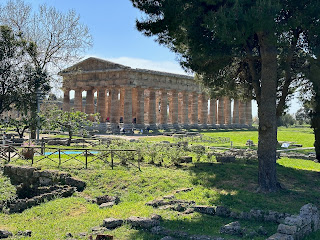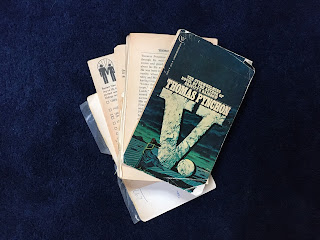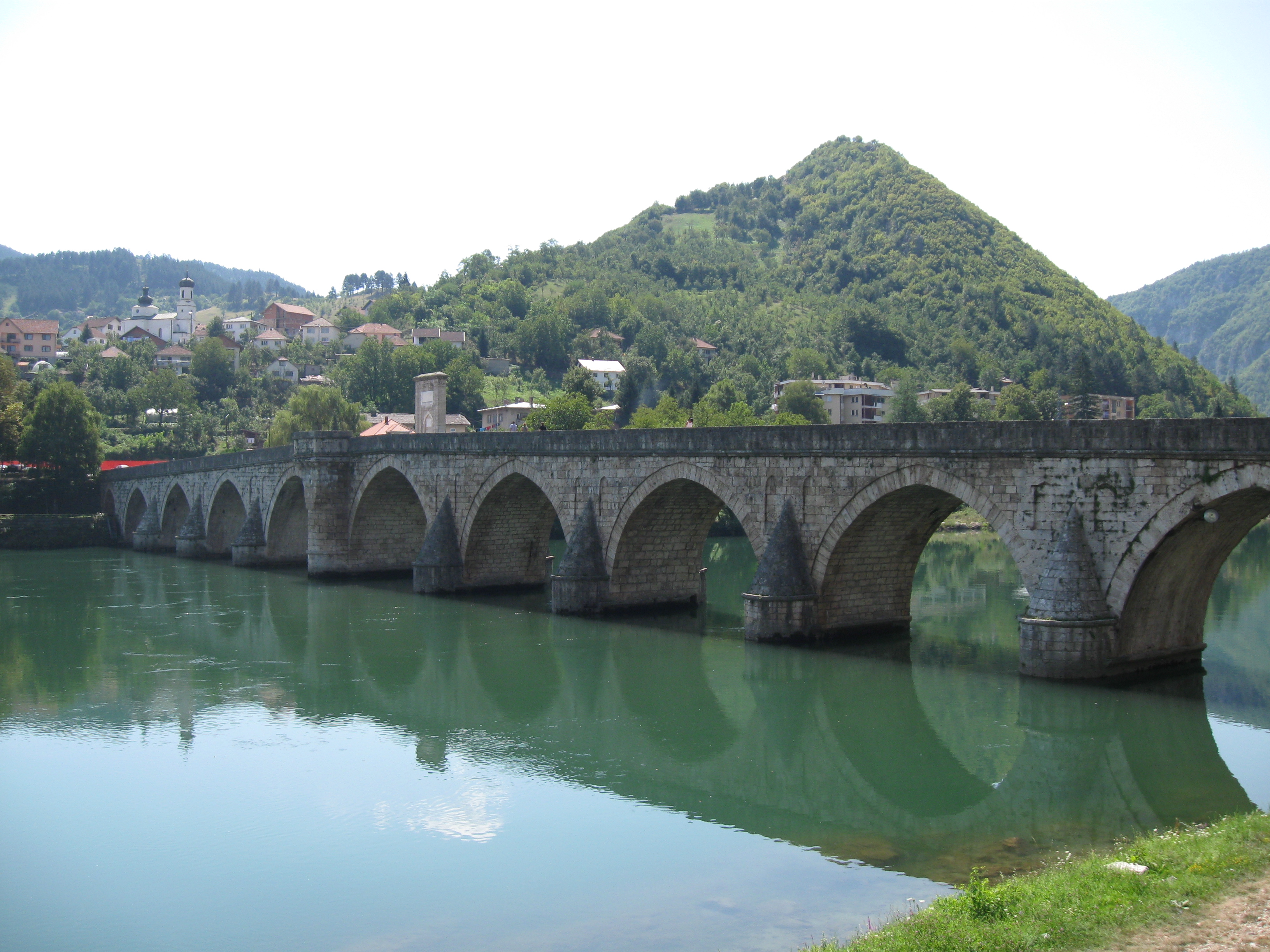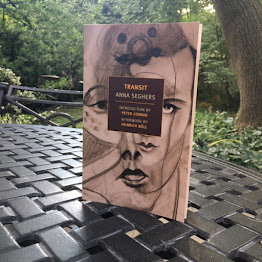 |
| Here we have Hubert arbiting some elegances |
My spin book this time was Henryk Sienkiewicz' Quo Vadis, which set off a mini-reading project.
Petronius' The Satyricon
I knew Caius Petronius was a major character in Quo Vadis, and I thought I'd reread The Satyricon in advance. It's mostly accepted (though not universally) that Petronius, author of The Satyricon, is that Caius Petronius mentioned as the Elegantiae Arbiter of Nero's court in Tacitus. (Though maybe not: it's a common enough family name in Rome.)
What we have of The Satyricon is pretty fragmentary; parts, we're told, of Books XV and XVI, amounting to 164 pages in William Arrowsmith's translation. Even the exact meaning of the title is uncertain. For a Roman (as also a bit for us) it probably suggests several things: Satyrs (and thus lechery), satire, but also satura, a Roman word meaning heap or medley. The longest continuous surviving stretch is the dinner at Trimalchio's, who is a freedman working for the Imperial court, with lots of money and little taste and maudlin when drunk. It's amusing to see the sort of thing a rich Roman would have been eating at the time. It makes turducken look like an exercise in restraint.
It's not possible to say much with certainty about the work. If the note attached to the late medieval manuscript is correct about books XV and XVI, it would be a very long work, even if there were only 16 books--and 24 would be a significant number for an ancient author. Encolpius--the (loosely speaking) hero--of the book cons his way through life, cadging free dinners where he can, and sleeping (or trying to) with anything that moves. He hangs out with grammarians, professors of rhetoric, poets, so he seems to be an educated man, but there's something criminal in his background. Also he's managed to offend the god Priapus, with an unwelcome effect on his, umm, priapic appendage, and is on a quest to get back in good with the god, and go on sleeping around. (Probably. The book is fragmentary.) It is a severe judgment of its society. I find it funny in places, but your mileage may vary: some of the jokes are pretty insider-y Roman.
I took an undergraduate class on Petronius. We read a good chunk of the book in Latin, and as well as all of it in Arrowsmith's translation. I must have read the introduction--which is quite good--but I was amused now with how engaged Arrowsmith was with Lolita. (His translation comes out in 1959.) He calls Lolita a failure--twice. I'm sure I hadn't read Lolita at the time. It's not a comparison that would have occurred to me though. The sexual abuse of children is the meeting point, I suppose, but they're not really very much alike. Rather The Satyricon's embedded poetry, commentary thereon, and comically epic plot is more Pale Fire than Lolita. (Though The Satyricon is not either of them, of course.)
Tacitus' Annals
I enjoyed The Satyricon, but in the end I don't think rereading it brought much to Quo Vadis. Sienkiewicz accepts the attribution to Caius Petronius, but it doesn't otherwise feel like it impacts. Much more useful were the Annals, Tacitus' history of Rome from the death of Augustus to the death of Nero. (A.D. 14 - A.D. 68). Moses Hadas, in his introduction, notes that "Sienkiewicz' Quo Vadis... [has] long sections which are but adaptations of Tacitus." True that, Moze.
I thought one of the best things in Quo Vadis was the portrait of Petronius. Sienkiewicz is certainly taking off from Tacitus:
"His [Petronius'] days he passed in sleep, his nights in business and pleasures of life. Indolence had raised him to fame, as energy raises others, and he was reckoned not a debauchee and spendthrift, like most who squander their substance, but a man of refined luxury. And indeed his talk and his doings, the freer they were and the more show of carelessness they exhibited, were the better liked, for their look of natural simplicity...Then falling back into vice or affecting vice, he was chosen by Nero to be on of his few intimate associates, as a critic in matters of taste, while the emperor thought nothing charming or elegant in luxury unless Petronius had expressed to him his approval of it." [Annals 16.18, tr. Church and Broadribb]
Also, the great fire of Rome during Nero's reign. (July, A.D. 64) Tacitus would have been somewhere around six years old at time, but he doesn't use his own memories of the event (assuming he had some); instead he draws on earlier histories. It's a vivid moment in the book. Tacitus doubts Nero was responsible for the fire, but notes the rumors of Nero's guilt spring up almost immediately. The persecution of the Christians after the fire--Tacitus is our earliest source for this--he attributes to Nero's need to find a scapegoat to stifle those rumors.
The other thing that struck me (though irrelevant to Quo Vadis) was how important Armenia was in Roman thinking at the time. It was an ally, practically a client state, stuck on Rome's eastern border, wedged between Rome and the Arsacid-ruled empire of Parthia (corresponding roughly to modern Iran) who were a major rival to Rome at the time. Quite a lot of energy is devoted to keeping a friendly king in Armenia.
Tacitus is a famously difficult author in Latin. The (small) amount of his Latin I read in grad school impressed me; his tricky sentences frequently end with a sharp ironic sting in their tail. He reminded me of George Eliot, though of course the lines of influence run the other way, and I'm quite sure George Eliot knew her Tacitus perfectly well. The Church and Broadribb translation is fine, but it doesn't capture what I remember of the magic of Tacitus' prose.
Henryk Sienkiewicz' Quo Vadis
And on to the main event...
The handsome soldier Marcus Vinicius meets Callina (also called Lygia) and his knees tremble such as they never did in battle; the beautiful Lygia blushes bright pink and scampers off without a word out of Marcus' presence. "Ah, ha!" says the trained literary mind. "What we have here is Romantic Comedy!"
In romantic comedy the Question is what keeps our lovers apart and what it takes to get them together again in the end. Well, in Nero's Rome, there are plenty of things to keep them apart, maybe, just possibly, too many...
Not least is the fact that Lygia is a secret Christian. Years before she had been handed over to the Romans as a hostage and guarantee of a treaty between the Lygii and the Iazyges. The Romans were a neutral party in that conflict. But Lygia's father dies in battle and her mother dies as well, so Lygia, though an official state hostage, is more or less forgotten, raised by a nice Roman couple of the senatorial class.
Lygia is dark-haired with blue eyes and is so good-looking everyone is worried when she's in a room with Nero for a couple of hours he will fall into uncontrollable lust. Ah, but Petronius has a plan for that. (I suspected, and later verified, that the Lygii inhabited what is now Poland. A little Polish boosterism on the part of our author.) What Petronius didn't take into account was that the equally good-looking Marcus would attract the eye of Poppaea, the empress. Complications ensue.
This lightness doesn't last, though. (Well, the subtitle does say it's a narrative of the time of Nero.) The great fire and the persecution of the Christians are yet to come. For the purposes of the novel Sienkiewicz always assumes of the worst of Nero. Every time when Tacitus says some historians say this and some say that, Sienkiewicz always chooses the darker that, even when Tacitus says the milder this is likely true. For instance, the fire is started at the instigation of Nero, and, according to Sienkiewicz, he really does fiddle (or at least play a lyre) while Rome burns.
If it's not already clear, I preferred the earlier, lighter part of the novel. There were even some of those insider-y Roman jokes. When Petronius says of something it involves more fish than even Apicius ate in his life, I laughed. But it helps to know Apicius was the author of a cookbook. Petronius also snarks about Lucan's skill as a poet.
Later I felt it descended a bit into religious tract. The Christians (which include Peter and Paul) are all annoyingly noble, with the partial exception of Crispus, a fire and brimstone type who gets the occasional reprimand. Saint Paul asks Petronius (and we're reminded of it a second time), "If Caesar [Nero] were a Christian, would ye not all feel safer?" I'm afraid I wouldn't, and, alas, I don't think the question was meant ironically. The torture scenes began to feel a little voyeuristic. I was also a bit alarmed by Sienkiewicz' handling of Poppaea's purported Judaism. Josephus, the Jewish historian, is the source for this, and he meant it as a compliment. It doesn't come across that way in the novel.
Still, the later part has more portraits of well-known people and more big events. Not just Peter and Paul and Petronius. Nero and Poppaea do make good villains, even if their villainy is a bit played up. Seneca and Lucan have small roles. The danger and drama do pick up.
And as for our lovers? Well, you'll just have to read it and see... (if you haven't already.)
Antonine Propaganda
There's an exhibit on currently about Nero at the British Museum. I won't get to see it, but I did read the recent New Yorker article... It reminds us it's the winners who get to write the history. Tacitus, the most balanced of the surviving historians covering the period still clearly hates the Julio-Claudian emperors (that sequence of emperors who were descended somehow from Julius Caesar. Nero was the last.) Suetonius makes no pretence of balance. Both Tacitus and Suetonius flourished under the Flavian and then even more under the Antonine emperors, dynasties that were happy to have the previous guys slandered. It's just possible Nero wasn't quite *so* bad. Augustus had Maecenas, his PR guy, and consequently got pretty good press. The rest of the Julio-Claudians not so much. It doesn't necessarily matter for a novel, but it's worth keeping in mind.
Bit of a rainy week at the Internet-Free Zone so lots of reading. But there was a moment of sun when we caught this guy catching some rays...





























